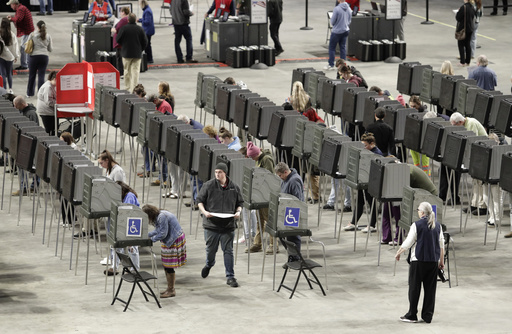
PORTLAND, Maine — This week, residents of Maine made a significant decision by approving a referendum aimed at placing restrictions on donations to political action committees (PACs) that engage in independent spending for candidate elections. This move sets the stage for a potential legal battle concerning the limits on individual contributions to so-called super PACs, which have the freedom to spend as they wish on electoral activities.
In a unique campaign finance reform measure that appeared on the Election Day ballot, Maine citizens voted to establish a cap of $5,000 on individual donations to super PACs. Advocates of the measure are bracing for a legal dispute that they believe will provide needed clarity regarding PAC contributions, especially in light of the U.S. Supreme Court’s earlier ruling that permitted unfettered spending by super PACs.
According to state Senator Rick Bennett, a proponent of the initiative, the measure has been thoughtfully designed to withstand potential legal scrutiny, particularly as states explore ways to regulate campaign financing following the Supreme Court’s 2010 Citizens United ruling. Bennett expressed concern about the influence of wealth in politics, stating, “Our democracy is being bought and sold by the richest people in our country,” and emphasized that this measure has garnered support across political lines. He noted that opposition primarily comes from wealthy interests who exploit existing systems.
The Supreme Court’s Citizens United ruling effectively allowed corporations and labor unions to spend without limits in support of candidates, and a subsequent Court of Appeals ruling further eliminated caps on individual expenditures. However, the new initiative in Maine concentrates specifically on limiting contributions to super PACs rather than restricting independent expenditures made on behalf of candidates, an area yet to be addressed by the Supreme Court, according to legal experts.
Cara McCormick, leader of the advocacy group Citizens to End Super PACs in Maine, stated that the initiative aims to mitigate the excessive influence wielded by super PACs, particularly through “dark money” donations that do not require donor disclosure. These political nonprofit organizations are not obligated to reveal their financial donors nor provide details about their expenditure activities, while super PACs can raise and spend unlimited funds as long as their efforts are not coordinated with candidate campaigns.
“We have the right to stand up to big money in politics in Maine. We’re asserting our right to limit contributions to super PACs to eliminate not just corruption, but also the appearance of it,” McCormick emphasized, reflecting the spirit of the initiative.
In Maine, the new limits will only apply to PACs making expenditures on behalf of candidates; it will not affect ballot committees engaged in referendum funding. The current law permits individual donations of up to $1,950 to gubernatorial candidates and $475 to legislative candidates.
The referendum received backing from prominent voices in campaign finance reform, including Lawrence Lessig from Harvard Law School and his non-profit Equal Citizens. Another similar reform initiative in Massachusetts faced obstacles when blocked by the attorney general due to constitutional concerns.
Despite conflicting opinions from the D.C. Court of Appeals, Lessig noted that well-established legal precedents suggest that states retain the authority to impose limits on contributions to PACs. He further articulated the potential dangers of unchecked individual contributions, which could lead to conflicts of interest even if super PACs are not directly coordinating with candidates.
Ultimately, the Supreme Court will need to resolve this matter. Lessig expressed optimism that the Court would uphold existing legal understanding, asserting that the case does not seek to overturn the Citizens United decision, but rather affirms states’ abilities to limit contributions.
Should there be no legal challenge, the new law is set to take effect this winter, following a resounding public approval, with nearly 75% of voters supporting the citizen initiative.
